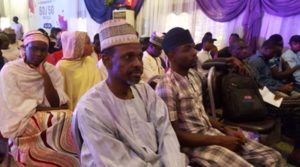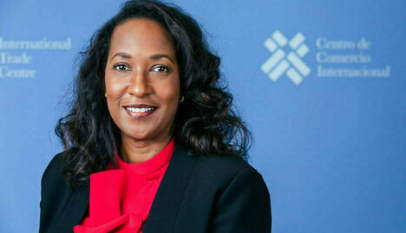As the Voices for Change (V4C) draws to an end
As the Voices for Change (V4C) programme draws to a close, efforts are being made to ensure sustainability for the success it has recorded in transforming social attitudes towards women and girls in Nigeria

The Voices for Change (V4C) programme, a 4-year DFID funded program is aimed at transforming social attitudes towards women and girls in Nigeria towards creating an enabling environment for women and girls in Nigeria using an inclusive approach of targeting men, women, boys and girls.
The programme which is scheduled to end later in 2017 targets religious and community leaders, women groups, male influencers as well as youth, capitalizing on the growing access to digital mobile technology by Nigerian youth while seeking to change some of the more entrenched formal and informal barriers that prevent girls and young women from realising their potential in the country.
The vision of V4C “is change that benefits all of Nigeria’s adolescent girls and young women, including the poorest and most vulnerable, it does not set out to directly reach and benefit a sub-set of these. Rather, the ambition is to equip a wide range of young women and men to ‘speak up and speak out’ to challenge gender stereotypes and discriminatory social norms.”
As the programme draws to a close, efforts are being made to ensure sustainability for the success it has recorded in transforming social attitudes towards women and girls in Nigeria. It was as part of efforts to ensure sustainability for V4C’s legacies, which include the Purple movement, that a closeout meeting was held in Kano recently.
Kano is one of the states where the V4C programme is being implemented in Nigeria, alongside Enugu, Kaduna and Lagos states. The closeout meeting was therefore attended by V4C partner organizations and individuals working in Kano state.
“V4C has been working with men, boys, traditional and religious leaders in Kano for 4 years and it is now rounding up so we brought all the stakeholders together to form a community that will ensure a partnership between men and women to achieve a society where men and women can live together and have access to equal opportunities in leadership and governance processes,” says Patience Ekeoba, V4C’s research and evidence lead.
Dr Mustapha Yahaya is the executive director of Democratic Action Group (DAG), one of the partner civil society organisations working with V4C in Kano in respect to the programme’s output 4 which has to do with women’s participation in leadership and governance processes. He says his organization has, in a partnership with Voices for Change, succeeded in setting up the Women in Leadership Platform in Kano state and the Northwest region.
“V4C’s Purple campaign is gradually being accepted as people’s negative perception is being changed. It is a gradual process. We have succeeded in establishing the Women in Leadership Platform in Kano state and Northwest region which is working to ensure women are given the opportunity to participate in leadership and governance processes including political positions,” says Dr Yahaya.
He therefore expressed his disappointment in the Kano State House of Assembly for rejecting the two women nominated by the Governor of Kano state, Abdullahi Umar Ganduje, for the positions of sole administrator-ship of only 2 out of the 44 local government areas of Kano state.
“I am highly disappointed in the members of the Kano State House of Assembly for rejecting the 2 women nominees submitted to them for confirmation as sole administrators in the state. Sadly, the two women were later replaced with men, this is even though more women have consistently participate in elections than men; more women go out to vote during elections than men,” says Dr Yahaya.
Hauwa El- Yakub, a gender activist was one of the panelists at a panel discussion on women’s participation in leadership and governance processes who called on the need for awareness to be created about the plight of women whom she said were not being giving “their fair share when it comes to leadership and governance.”
Another panelist, Amina Hanga, who is the executive secretary of the Isa Wali Empowerment Initiative (IWEI) said if any meaningful progress must be achieved in Nigeria then women must be given the opportunity to participate in governance processes and also expressed her dissatisfaction with the recent decision of the National Assembly in Nigeria to reject the bill for affirmative action.
“The National Assembly recently rejected the bill for affirmative action, which is about giving women 35% of all ministerial positions at the federal level and giving them 20% of commissionership positions at the level of states. This is a huge drawback for Nigeria because 50% of the population is not being allowed to participate in governance. To achieve that we need to involve the youth as well as educate children on the issue so they will grow up with these ideals,” she advised.














